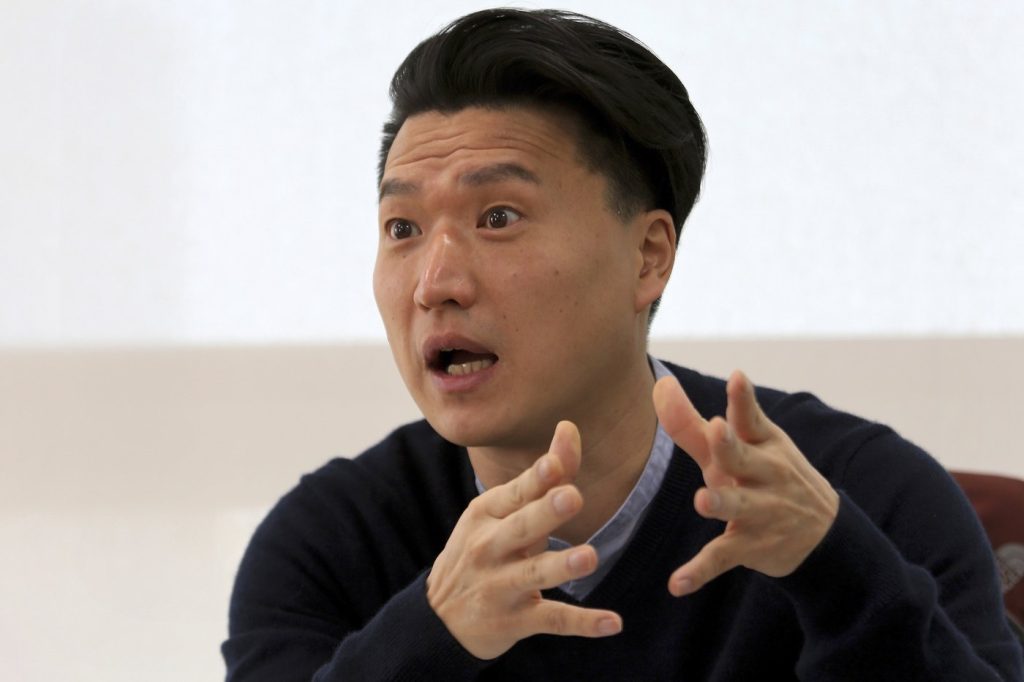SEOUL, South Korea (AP) - A South Korean court has ruled in favor of the government and an adoption agency, absolving them of liability in a case brought by Adam Crapser, a 49-year-old man whose traumatic adoption story has been marked by significant abuse and neglect. Crapser's journey ultimately led to his deportation to South Korea in 2016 following legal troubles in the United States due to a lack of citizenship.
The Seoul High Court cleared the South Korean government of all responsibility in the adoption case, overturning a previous decision from the Seoul Central District Court that had ordered Holt Children’s Services, the agency involved in Crapser's adoption, to pay him 100 million won (approximately $68,600) in damages. The lower court had found that Holt failed to inform Crapser's adoptive parents of the necessary steps to secure his citizenship after the adoption was finalized, yet it did not hold the government accountable for his situation.
Crapser did not attend the court ruling, and the full text of the Seoul High Court's decision has yet to be released. He has described his experience as one of profound abuse and abandonment by two separate adoptive families, both of whom neglected to file citizenship papers on his behalf. His legal troubles included breaking into his adoptive parents' home to retrieve a Bible that was sent with him from an orphanage, which eventually led to his deportation as he was not recognized as a U.S. citizen.
In defense of their actions, both the government and Holt cited a 1970s adoption law that was implemented during a military dictatorship in South Korea. This law was designed to expedite the international adoption process by lowering the obligations of adoption agencies concerning the citizenship status of children sent abroad, while also removing judicial oversight from foreign adoptions.
The law, which was enacted in January 1977, allowed agencies to process adoptions more efficiently but has been criticized for contributing to negligent and fraudulent practices, as it is believed to have fueled one of the largest international adoption programs in history. From the 1960s to the 1980s, South Korea was controlled by successive military leaders who emphasized economic growth and promoted adoption as a means of reducing socioeconomic burdens and enhancing ties with Western nations.
Crapser's attorney has not made a statement regarding a possible appeal to the Supreme Court in light of the high court's ruling. Neither the Justice Ministry, which represents the government, nor Holt released any immediate comments following the verdict.
Adam Crapser was among over 4,000 Korean children sent abroad in 1979. At the age of three, he was adopted by a family in Michigan and later became the first Korean adoptee to sue the South Korean government and an adoption agency for damages in 2019. Additionally, last year, the government and Holt were sued by a Korean birth mother claiming they were responsible for her daughter's adoption to the United States in 1976, shortly after the girl was kidnapped at the age of four.
The ongoing lawsuits, alongside a fact-finding investigation into claims by hundreds of adoptees regarding potential falsification of their origins, have intensified calls for the South Korean government to address past fraud and questionable practices related to international adoption.
Crapser's lawsuit accused Holt of mishandling his paperwork, falsely representing him as an orphan despite having a known birth mother. Furthermore, it alleged negligence in thoroughly vetting adoptive parents and failing to follow up on his citizenship status. The lawsuit also claimed that government officials should be held accountable for not protecting his constitutional rights as a South Korean child, poorly monitoring the agency licensed for foreign adoptions, and neglecting to verify proper consent in his adoption.










